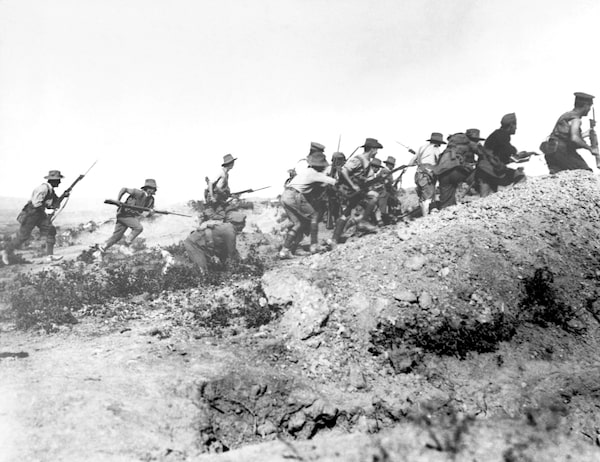Good morning,
Canada’s economic output on a per capita basis has dropped to 7 per cent below its long-term trend, according to a report published yesterday by Statistics Canada.
To return to trend over the next decade, real GDP per capita would need to grow at an average annual rate of 1.7 per cent, but the authors of the report write that “per capita growth of this magnitude is ambitious and a marked departure from recent trends.”
Canada’s soft economic performance on a per person basis has become a hot topic of discussion over the past couple of years. In a speech last month, Bank of Canada senior deputy governor Carolyn Rogers said the country is facing an “emergency” of weak labour productivity and low levels of business investment.

Construction is shown at the site of a new condominium project in downtown Toronto, Tuesday, Jan. 24, 2023.Graeme Roy/The Canadian Press
This is the daily Morning Update newsletter. If you’re reading this on the web, or it was forwarded to you from someone else, you can sign up for Morning Update and more than 20 other Globe newsletters on our newsletter signup page.
Pro-Palestinian protesters dig in at Columbia University, other U.S. campuses
The student organizers of a pro-Palestinian encampment at Columbia University are vowing to stay until the school pulls its endowment money out of companies connected to Israel, thwarting the university’s efforts to end the protest even as similar camps spread to other campuses across the United States.
By yesterday, tent villages had sprung up at the Massachusetts Institute of Technology, the University of Michigan and California State Polytechnic, among other schools. At the University of Texas in Austin, police in riot gear, some of them on horses and motorcycles, broke up a pro-Palestinian march and arrested more than a dozen protesters to stop a planned encampment.
The protests are the latest high-profile demonstration against U.S. support of Israel amid the latter’s six-month-old invasion of the Gaza Strip.
Ontario looks to reduce doctors’ paperwork as it seeks to attract family physicians
Ontario plans to cut down on the burden of paperwork for doctors as it expands a pilot project to test artificial-intelligence note-taking software. The move comes as leading medical schools in the province warned that more action is needed to stop an alarming decline in the number of students interested in becoming family doctors.
Leaders in the medical profession blame the problem on the demands of the administrative work that primary-care practitioners face and the fact that other medical specialties, such as surgeons, are paid much more.
The province is also expanding the number of spots available at medical schools – and is set to open a new school in Vaughan, north of Toronto, focused on family medicine – to address the growing gap that has left 2.3 million Ontarians without a primary-care physician.
Got a news tip that you’d like us to look into? E-mail us at tips@globeandmail.com Need to share documents securely? Reach out via SecureDrop
Also on our radar
Bank of Canada officials split on rate-cut timing: Bank of Canada officials are split on when to start lowering interest rates, but agree the pace of cuts will likely be gradual when they do begin easing monetary policy as the bank’s governing council is becoming more confident that inflation is heading back to the 2-per-cent target.
Airbus spared from Canadian sanctions on Russia: The federal government has granted Airbus a reprieve from sanctions targeting Russian titanium that could interfere with its business in Canada, two government sources say. The move has angered Ukrainian-Canadians and drawn criticism from the Conservatives.
Mizrahi files lawsuit against Edward Rogers: Real estate developer Sam Mizrahi is suing Edward Rogers and his real estate fund, intensifying a battle between the businessmen amid an alleged $30-million loss on their Toronto condo project.
Cheap imported drones fuel African conflicts: A flood of cheap imported drones is changing the face of warfare in Africa, making it deadlier and more indiscriminate. The proliferation of easy-to-obtain drones – known as unmanned aerial vehicles – is fuelling conflicts, increasing civilian casualties and filling the skies with new threats.
Winnipeg ballet to premiere historic production: The Royal Winnipeg Ballet is set to premiere a historic performance this month as it collaborates with Indigenous artists from across Canada and the U.S. to present an entirely new production in a First Nations language.
A rehearsal of T’əl - The Wild Man of the Woods at the Royal Winnipeg Ballet on April 17, 2024.Shannon VanRaes/The Globe and Mail
Morning markets
World stocks snapped a three-day winning streak on Thursday as disappointing forecasts from Facebook and Instagram parent Meta hammered tech, while the yen’s drop through 155 per dollar for the first time since 1990 kept FX traders on intervention alert.
Japan’s tech-heavy Nikkei slid 2 per cent as Hong Kong’s Hang Seng gained 0.5 per cent. In early trading, Britain’s FTSE 100 rose 0.7 per cent, Germany’s DAX dipped 0.4 per cent and France’s CAC 40 lost 0.3 per cent. The dollar traded at 73.10. U.S. cents.
What everyone’s talking about
Editorial: “If the Liberals want to create a foreign-agents registry that could have an impact on the election scheduled for October, 2025, they need to introduce the necessary legislation before the House rises in June. Anything else will be, at this point, a dereliction of duty.”
John Ibbitson: “In its well-meaning effort to encourage the migration of international students to Canada, the Trudeau government is turning swaths of our postsecondary education system into a grift. As a result, broad public support for immigration, the foundation stone of multicultural Canada, is eroding. … The Liberals’ immigration policies have accomplished the very opposite of what they intended: They have undermined support for immigration.”
Today’s editorial cartoon

Illustration by David Parkins
Living better
‘A bit of a treasure hunt:’ Why foraging tours are taking off
In the past few years, foraging – a.k.a., looking for wild food outdoors – has been increasing in popularity, and now that popularity is translating into a new kind of tourism. Think: folks on vacation seeking out mushroom-hunting excursions, foraging tours paired alongside a cooking class, plant identification walks, and the like. Check out these Canadian destinations where foraging tourism is taking off.
Moment in time: April 25, 1915

Australian troops charge near a Turkish trench just before the evacuation at Anzac, 1915.Historical/Getty Images
ANZAC forces land at Gallipoli during the First World War
With Great War fighting reduced to trench warfare in France and Belgium, Great Britain and its allies moved against the enemy Ottoman Empire in the spring of 1915. The plan was to seize the Dardanelles and take the strategic Turkish port of Constantinople. When a naval attack failed, a large amphibious invasion force was dispatched to capture Gallipoli, a peninsula bordering the deep-water strait. Among those who landed on the west coast of the peninsula on this day in 1915 were 16,000 members of the Australian and New Zealand Army Corps (Anzacs). They had no combat experience. From their beachhead that morning, the Anzacs scrambled up steep, rugged hills and ravines, seeking to drive inland from the top of the peninsula. A fierce firefight with Turkish defenders forced the Anzacs to withdraw – at a cost of 2,000 Anzac dead and wounded. Ordered to “dig in” at a place that became known as Anzac Cove, they spent eight perilous months pinned down in their entrenched position before being evacuated. Anzac Day (April 25) is national day of remembrance in Australia and New Zealand. It is also commemorated at the Menin Gate, Ypres, Belgium. Bill Waiser
Enjoy today's horoscopes. Solve today's puzzles. Read today's Letters to the Editor.
If you’d like to receive this newsletter by e-mail every weekday morning, go here to sign up. If you have any feedback, send us a note.